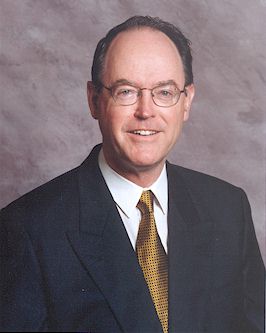|
|
|
JAB'd
- And It Really Hurts ³Price stability (read low inflation, AM) has never been an end in itself. Rather, it has always been the best contribution which monetary policy can make to allowing the economy to grow at its maximum sustainable pace." Stated the Governor of the Reserve Bank of New Zealand, Don Brash, on 21 March this year to the Auckland Regional Chamber of Commerce. Just Another Bureaucrat (JAB) preaching to a congregation of fellow converts? I'm afraid it is not so easy to duck this JAB. I don't think it's just me who feels the pain? Don Brash has been given a special place in New Zealand, political and economic power without the personal responsibility of carry the results, apart from bad press. Just about everyone else experiences the opposite, little personal power, lots of carrying the results of other people's decisions and no press. The Reserve Bank of New Zealand, and its governor in particular, is a special case of a long term political appointmentee making personal decisions over the public domain and as such, needs careful and constant scrutiny. Its not that the Reserve Bank is never heard from or looked at, publicity abounds. But publicity is not the same as scrutiny, often its quite the opposite, smoke and mirrors. Such as ³We estimate that the sustainable growth rate of the New Zealand economy is around 3 per cent per annum. Of course, the economy can grow faster than that for a time if it starts from a situation of excess capacity, as was the case in the early nineties and was the case in mid-1998. But when that excess capacity is used up, the economy needs to slow to about the sustainable growth rate or risk inflation beginning to pick up." Said Don Brash. Which formula, when decoded into the vernacular, is pretty solid. If the supply is up then more things can be bought without raising prices, growth without inflation. When the supply runs down, then so does the buying and the growth rate, or, prices will go up. However, can Don Brash know when that piece of rational divinity is touched, the point of balance between supply and demand? I believe not. Formulae work well in economics exams but reality is a lot more complicated and unknowable. It is the assumptions that kill. That because Don Brash and the Reserve Bank know all the formulae off by heart, they can be safely given `the economy' to drive via interest rate levers. As Don Brash observed, and it is rather obvious ³Some people worry that the Reserve Bank can do considerable damage to the economy by assuming too low a sustainable growth rate, by assuming, say, a 3 per cent growth rate where in reality the economy could grow at 4 or 5 per cent if only the Bank would allow demand to expand more rapidly. But if the economy is really capable of growing at 5 per cent and the Bank runs monetary policy on the assumption that it is only capable of growing at 3 per cent, then quite quickly demand will fall below capacity to supply, there will be a strong tendency for prices to fall, and the inflation rate gets pushed down towards the bottom of the 0 to 3 per cent target range. And since we take not going through the bottom of the target as seriously as we take not going through the top, we are forced to ease monetary policy to let demand expand. In other words, we canıt avoid making a judgement about sustainable growth, and we canıt get it wrong for too long before we are forced to adjust our estimate.² All very logical. We know when there is a depression because prices (inflation) fall and at that point the RB steps in and lowers interest rates to stimulate borrowing and hence spending power and hence spending and hence growth rises again. There is one small catch, people are not entirely rational machines, they don't conform to formulae like computer programmes. For instance, when people's income and spending power falls, this affects something apparently invisible to Don Brash and the other RB desk-jockies, our unconscious and its emotional indicators. Prices fall because people are worried, fearful and in commercial retreat and in that psychic environment non-rational factors swamp the rational intellect. Life's equivalent of `critical mass', panic, will stampede over a thousand Don Brash equivalents, despite their protestations of best intentions. ³But of one thing you can be absolutely certain. The Reserve Bank has absolutely not the slightest interest in choking off the recovery. All the evidence suggests that the economy has been growing with increasing vigour over the last couple of years, and most commentators expect it to continue growing at between 3 and 4 per cent per annum for at least the next couple of years. All the evidence suggests that, in these circumstances, it is high time to ease off the accelerator and ponder whether to touch the brakes,² Dr Brash concludes. All the indicators, all the evidence, all the statistics in the world are as nothing when people hear the word on the street, and its run for your life. So who has their ear to the street? That's the job of politicians. And that is why I conclude that the RB boys and all other Public Servants need to be re-nationalised, unprivatised, re-publicised and scrutinised. You've got your role to play Don and your good at it, but your role is not God. . .rs and posters with messages that demand jobs and an end to poverty. These foot-soldiers are mobilisi |

